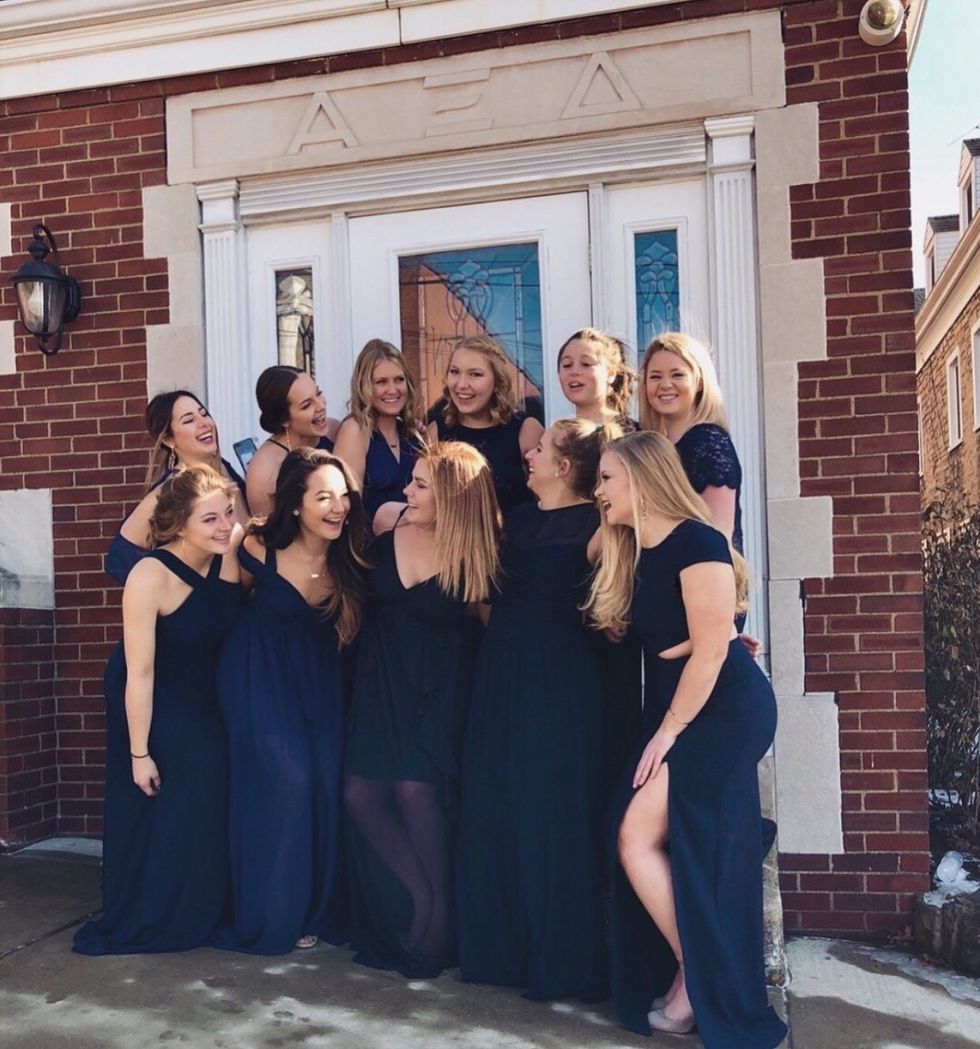A coalition of both male and female students are suing Harvard University in Massachusetts federal and state court over a campus policy discouraging private, single-sex organizations that blacklists students deemed to be members of single-sex sororities, fraternities, and Harvard-specific final clubs.
The federal complaint — filed by sororities, fraternities, and three unnamed College students — alleges that the sanctions constitute sex-based discrimination and violate federal anti-sex discrimination law Title IX and the United States Constitution. Harvard's sanctions — which took effect with the Class of 2021 — bar members of single-gender final clubs and Greek organizations from holding campus leadership positions, varsity team athletic captaincies, and from receiving College endorsement for prestigious fellowships like the Rhodes.
In the federal case, the plaintiffs are the international organizations for two sororities, Kappa Alpha Theta and Kappa Kappa Gamma; the parent groups for two fraternities, Sigma Alpha Epsilon and Sigma Chi; Harvard's chapter of Sigma Alpha Epsilon; and three current Harvard students who are also members of all-male social clubs. The undergraduates are not named in the suit.
The plaintiffs in the Massachusetts suit are the international parent group of sorority Alpha Phi, Harvard's newly reinstated chapter of Alpha Phi, and a management company for chapters of sorority Delta Gamma. Harvard has "succeeded perversely" in eliminating nearly every women's social organization previously available to female students at the school. Almost all of its all-women social clubs have closed their doors or renounced their status as women's social organizations and become co-ed, according to the plaintiffs.
Being in a sorority myself, Harvard's decision to ban members of Greek life from even running for campus leadership positions or scholarships is infuriating. Harvard has erased these empowering women's spaces, and it has done so paternalistically, without the input of these women and to the devastation of their organizations. These organizations have either had to renounce their proud status as women's organizations or commit to admitting men, which disrupts the very mission of sororities and tramples on students' rights to freedom of association.
The fraternity and sorority experience on campus, or greek life, carries many meanings and reputations for people. The way fraternity and sorority members are portrayed in society is unfortunate, especially given the amazing things these students do each and every day. College greek life typically includes social, professional, and academic groups that offer their members and constituents a sense of community and a rewarding co-curricular experience. Many, if not most, greek organizations offer networking opportunities to their members long after their college years. Many greek organizations are heavily involved in community service. These organizations have shown their ability to impact many people's lives throughout various outreach programs and philanthropic events. The leadership and professional attributes that are being developed throughout greek life affiliation is one that cannot go unnoticed.
As sorority and fraternity men and women, we should stand up to Harvard on behalf of all students, because we all have the right to shape our own leadership and social paths. Harvard simply cannot be allowed to erase the spaces members value for support and friendship, or ban members from opportunities as a punishment for being in Greek life. Stand up to Harvard.























